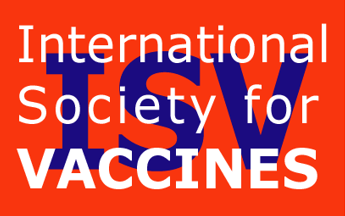
ISV congress offers vaccine updates and information on hypersensitivity

The last meeting of the COVID-19 vaccine congress from the International Society for Vaccines (ISV) provided information on the hypersensitivity events tied to mRNA vaccines as well as the most recent information on the Janssen and Novavax vaccines.
The International Society for Vaccines held its 6th and final COVID-19 Vaccines Virtual Congress on May 25, 2021. The sessions covered a variety of topics including further information on the Janssen vaccine, the Novavax vaccine, and hypersensitivity events linked to the mRNA vaccines.
In one session, Hanneke Schuitemaker, PhD, the Head of Viral Vaccine Discovery and Translational Medicine and Disease Area Stronghold Leader for Viral Vaccines at Janssen Vaccines & Prevention B.V., a subsidiary of Johnson & Johnson, discussed they key efficacy findings of the company’s vaccine, which included 66% efficacy against moderate to severe/critical COVID-19 in all of the countries where it was trialed as well as 85% efficacy against severe COVID-19 globally. In addition, the vaccine offered complete protection against COVID-19 related hospitalizations with no deaths in the group that received the vaccine. She also addressed the thrombosis with thrombocytopenia syndrome adverse event that led to a temporary pause in the vaccine’s use in the United States. The cases occurred in women aged 18 to 59 years and the onset of symptoms was 6 to 15 days after receiving the vaccine. To address the concerns, the company updated labelling of the vaccines and worked with public health organizations to spread awareness of the adverse event to improve diagnosis and the start of treatment. The company is continuing a 2-dose trial to determine if it would have greater efficacy and results are expected in the third quarter. Pediatric trials and studies in pregnant women are being discussed.
During another session, Greg Glenn, MD, the President of Research and Development at Novavax, Inc., discussed the company’s vaccine results in Phase III trials in the United Kingdom as well as the ongoing trial in the United States and Mexico. In the United Kingdom trial, the vaccine was found to be 89.7% effective overall and 96% effective with the original strain of disease as well as 86.3% effective in cases with the Alpha variant, previously known as the B.1.1.7 variant, which had become the predominant strain of the disease during the trial. In the ongoing trial in the United States and Mexico, the research has roughly 30,000 participants that are a representative sample of the population. Novavax, Inc. expects to file for authorization with the US Food and Drug Administration in the third quarter of 2021. A pediatric trial with approximately 3000 teenagers started in late April 2021. The adverse events are generally tenderness and pain at the injection site and were often mild. To address the concerns raised by variants, the company is looking at different approaches including boosters with variants or a bivalent approach.
For the final session Mariana Castells, MD, PhD, a clinician, researcher, and teacher at Brigham and Women’s Hospital, discussed the hypersensitivity events that are associated with the Pfizer/BioNTech and Moderna vaccines. The first 2 reactions occurred with the Pfizer/BioNTech vaccine in 2 female health workers in the United Kingdom who had known food and drug allergies and carried EpiPens. The Moderna vaccine was found to cause similar reactions when a doctor in Massachusetts with a known seafood allergy had an anaphylactic reaction. Research indicates that polyethylene glycols and polysorbates in the vaccines could be the culprit behind these reactions and skin testing for this hypersensitivity could be helpful. Anaphylaxis is a rare event after receiving a dose of the vaccine and no fatalities have occurred because of it so far. The reaction is quick and is likely to occur in the 15 minutes when a person should wait at the vaccination site for safety purposes. It appears to be far more common in women than men. Additionally, there are no contraindications to being vaccinated if there is a history of previous allergies, anaphylaxis, or mast cell activation disorders.
Newsletter
Access practical, evidence-based guidance to support better care for our youngest patients. Join our email list for the latest clinical updates.






